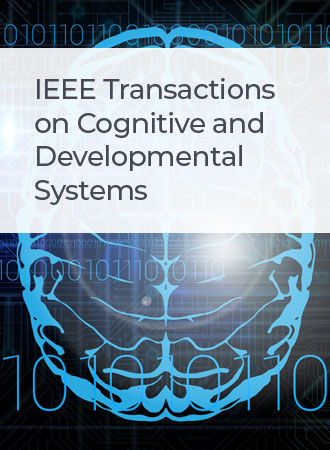DTCM: Deep Transformer Capsule Mutual Distillation for Multivariate Time Series Classification
IF 4.9
3区 计算机科学
Q1 COMPUTER SCIENCE, ARTIFICIAL INTELLIGENCE
IEEE Transactions on Cognitive and Developmental Systems
Pub Date : 2024-02-26
DOI:10.1109/TCDS.2024.3370219
引用次数: 0
Abstract
This article proposes a dual-network-based feature extractor, perceptive capsule network (PCapN), for multivariate time series classification (MTSC), including a local feature network (LFN) and a global relation network (GRN). The LFN has two heads (i.e., Head_A and Head_B), each containing two squash convolutional neural network (CNN) blocks and one dynamic routing block to extract the local features from the data and mine the connections among them. The GRN consists of two capsule-based transformer blocks and one dynamic routing block to capture the global patterns of each variable and correlate the useful information of multiple variables. Unfortunately, it is difficult to directly deploy PCapN on mobile devices due to its strict requirement for computing resources. So, this article designs a lightweight capsule network (LCapN) to mimic the cumbersome PCapN. To promote knowledge transfer from PCapN to LCapN, this article proposes a deep transformer capsule mutual (DTCM) distillation method. It is targeted and offline, using one- and two-way operations to supervise the knowledge distillation (KD) process for the dual-network-based student and teacher models. Experimental results show that the proposed PCapN and DTCM achieve excellent performance on University of East Anglia 2018 (UEA2018) datasets regarding top-1 accuracy.DTCM:用于多变量时间序列分类的深度变压器胶囊互馏法
本文提出了一种基于双网络的特征提取器--感知胶囊网络(PCapN),用于多变量时间序列分类(MTSC),包括局部特征网络(LFN)和全局关系网络(GRN)。LFN 有两个头(即 Head_A 和 Head_B),每个头包含两个挤压卷积神经网络(CNN)块和一个动态路由块,用于从数据中提取局部特征并挖掘它们之间的联系。GRN 由两个基于胶囊的变压器块和一个动态路由块组成,用于捕捉每个变量的全局模式,并将多个变量的有用信息关联起来。遗憾的是,由于 PCapN 对计算资源的严格要求,很难在移动设备上直接部署。因此,本文设计了一种轻量级胶囊网络(LCapN)来模仿笨重的 PCapN。为了促进从 PCapN 到 LCapN 的知识转移,本文提出了一种深变换胶囊互(DTCM)提炼方法。它具有针对性和离线性,使用单向和双向操作来监督基于双网络的学生和教师模型的知识蒸馏(KD)过程。实验结果表明,在东英吉利大学2018(UEA2018)数据集上,所提出的PCapN和DTCM在top-1准确率方面取得了优异的表现。
本文章由计算机程序翻译,如有差异,请以英文原文为准。
求助全文
约1分钟内获得全文
求助全文
来源期刊

IEEE Transactions on Cognitive and Developmental Systems
Computer Science-Software
CiteScore
7.20
自引率
10.00%
发文量
170
期刊介绍:
The IEEE Transactions on Cognitive and Developmental Systems (TCDS) focuses on advances in the study of development and cognition in natural (humans, animals) and artificial (robots, agents) systems. It welcomes contributions from multiple related disciplines including cognitive systems, cognitive robotics, developmental and epigenetic robotics, autonomous and evolutionary robotics, social structures, multi-agent and artificial life systems, computational neuroscience, and developmental psychology. Articles on theoretical, computational, application-oriented, and experimental studies as well as reviews in these areas are considered.
 求助内容:
求助内容: 应助结果提醒方式:
应助结果提醒方式:


